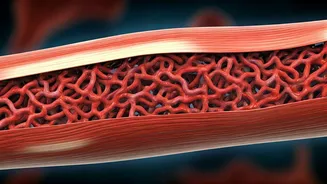Protein Absorption Basics
Protein, a vital macronutrient, is essential for numerous bodily functions. It aids in building and repairing tissues, producing enzymes and hormones,
and supporting overall health. When we consume protein, our digestive system breaks it down into smaller units called amino acids. These amino acids are then absorbed through the small intestine and enter the bloodstream. The body utilizes these amino acids for various processes, from building muscle to repairing cells. However, the efficiency of this process is not unlimited. Several factors can influence how much protein our bodies can absorb and utilize at any given time. Understanding these factors is crucial for maximizing the benefits of protein intake.
Absorption Limitations Explored
The amount of protein the body can effectively absorb at once is a topic of ongoing debate, but emerging research suggests there are limitations. Some studies indicate that the body can process a finite amount of protein per meal, with excess protein potentially being utilized for energy or converted and stored as fat. While exact numbers vary depending on individual factors, the general consensus suggests that the body can absorb approximately 20-40 grams of protein in a single sitting. Consuming protein in excess of this amount may not lead to additional muscle protein synthesis. Therefore, it's generally recommended to spread protein intake throughout the day to optimize muscle building and recovery.
Factors Affecting Absorption
Several factors affect the rate and efficiency of protein absorption. These include the type of protein consumed, the presence of other nutrients, and the individual's overall health and activity level. Whey protein, a fast-digesting protein, is absorbed more rapidly than casein protein, which digests slowly. Combining protein with carbohydrates and fats can also affect absorption rates, slowing the process. Moreover, an individual's activity level and overall health play a crucial role. Those engaged in regular exercise may have an increased capacity to utilize protein for muscle repair and growth compared to sedentary individuals. Overall health conditions and gastrointestinal health can also influence protein absorption.
Optimizing Protein Intake
To maximize protein absorption and utilization, consider spreading your protein intake throughout the day rather than consuming a large amount in a single meal. Aim for 20-40 grams of protein per meal, ensuring a consistent supply of amino acids to your muscles. Choose a variety of protein sources, including lean meats, poultry, fish, eggs, dairy, and plant-based options like beans, lentils, and tofu, to provide a complete amino acid profile. Be mindful of the timing of your protein intake, particularly after exercise. Consuming protein within a few hours of working out can promote muscle recovery and growth. Consider a balanced diet that includes enough protein and other essential nutrients to maintain overall health and protein absorption efficiency.



















